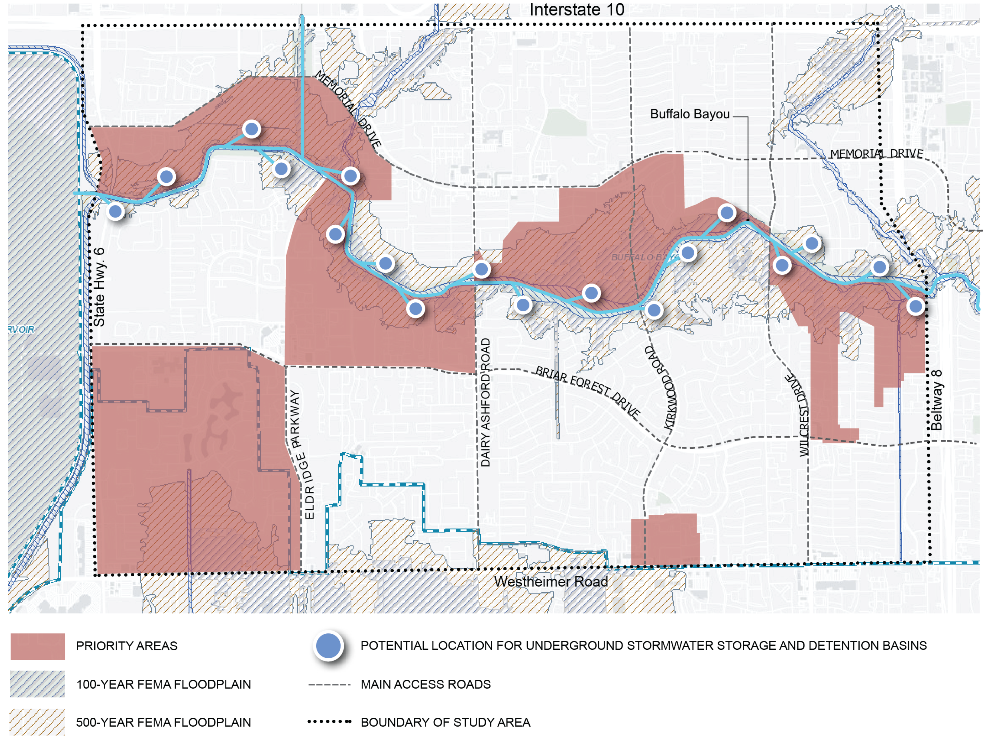The consequences of growing urbanization can be perceived in multiple levels around the globe: overpopulated living conditions, water and air pollution, loss of open space, costly transportation infrastructure, food shortages, fires and floods. The Houston metropolitan area is an example of fast urban growth, with a population increase of more than sixteen percent in seven years, going from 5.8 million people in 2010 to 6.9 million in 2017 [1]. By 2045, the robust growth of the region is projected to lead to the addition of approximately five hundred square miles of developed area, including an estimated six million parking spaces, seven hundred eighty million square feet of non-residential uses, and three and a half billion square feet of residential use [2]. The accelerated development, in addition to physical features, geomorphic processes and human activities in the region are believed to have caused Houston to suffer through over fifty devastating floods since its settlement, despite some successful flood damage reduction projects. The present study focused on the potential outcomes of an increased use of green infrastructure in comparable urban areas, and its effects on flooding volume. Results from the research revealed that not only these measures would likely improve the performance of existing urban drainage systems and attenuate flood incidence in the area, but would also promote connectivity between areas otherwise detached or only accessible by car, improving walkability and incentivizing engagement in outdoor activities.

